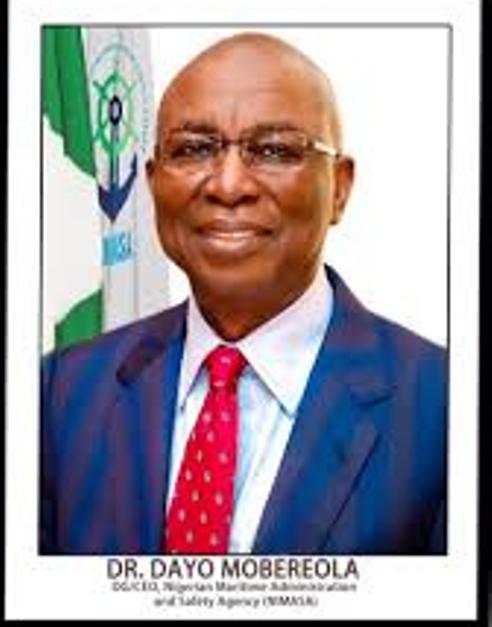
LAGOS MAY 25TH (NEWSRANGERS)-At a centre for Biafra war veterans in south east Nigeria, John Oliwe rolls his wheelchair into the backyard. He uses a small cutlass to uproot weeds from his vegetable plot as he recalls his role in the conflict that began when he was just 15 years old.
“I was very young when I left home to join the Biafran army,” he says. “I was scared and the recruiters said I was very young, but they later allowed me to join them because they needed men.”
The bloody war that Oliwe fought in, and whose mental and physical scars he carries to this day, started when Col Odumegwu Ojukwu declared Biafra an independent state. Many in the east rejoiced at the announcement, but it marked the start of a brutal and bitter war with the federal government. It ended three years later with millions dead and the region re-integrated into Nigeria.
Next week marks the 51st anniversary of 30 May 1967, the date of Ojukwu’s fateful pronouncement. Now known by many as Biafra Day, it provides a yearly moment for reflection.
“I sit here and tune in my radio to know what is going on,” says a visibly emotional Oliwe. “I can’t walk so I sit here, but my eyes are always heavy. I remember my colleagues and family members who died during that time.”
For many though, Biafra Day is more than just a time for looking back. Many in the south east claim the region is still marginalised and say they never received justice for the millions of people – mostly Igbo – who died in the war. They see this anniversary as an opportunity to protest against this ongoing status quo and, more recently, revive their predecessors’ calls for secession.
Recently heading this movement is the Indigenous Peoples of Biafra (IPOB), which has organised large-scale demonstrations and disruptions in the past few years demanding independence. Ahead of the upcoming anniversary, the group has called for sit-at-home protests.
“That day will be a total shutdown of Biafraland,” says Emeka Gift, an IPOB leader based in Côte d’Ivoire. “We expect all banks, schools, markets and business places to be on shutdown.”
Many supporters of the group are ready to heed this appeal. “We shall all sit at home and do nothing in respect and honour of our brethren who were ruthlessly killed by the government and her Western allies during the war,” says Brendan Okeke. “It’s a duty and an obligation for everyone who is proud to be a Biafran.”
However, compared to some of IPOB’s previous popularly-answered calls to action, there appear to be more mixed feelings this year. According to Kingsley Udegbunam, a specialist in peace, conflict and counter-terrorism at the University of Nigeria, next week’s protest is unlikely to match the success of some past demonstrations.
“I foresee a situation where the majority of Easterners will ignore the sit-at-home because of the waning influence of IPOB,” he says.
What happened to IPOB?
From around 2015 to 2017, IPOB was highly successful in organising protests in Nigeria as well as among the diaspora. On several occasions, huge numbers would take to the streets despite fear of clashes with security forces. In 2016, more than 150 demonstrators were killed on Biafra Day, prompting rights groups such as Amnesty International to condemn the federal government’s “chilling campaign of extrajudicial executions and violence” against peaceful protesters.
But more recently, the group’s ability to mobilise people has diminished. Analysts suggest that there are a number of reasons behind this.
Firstly, there are ongoing struggles for supremacy within the movement. The longer-standing secessionist group known as the Movement for the Actualisation of the Sovereign State of Biafra (MASSOB) has challenged IPOB’s right to call for a shutdown. Its leaders have even issued a counter-directive calling on people to ignore IPOB’s order. “There is a crack in the ranks of Biafra agitators,” says Udegbunam. Some of MASSOB’s members have also been targeted by security forces as they have tried to mark Biafra Day with large parades.
Another factor weakening IPOB is the government’s forceful crackdown on its activities and designation as a terrorist group. In September 2017, the federal government launched Operation Python Dance II and declared the organisation a threat to national security. Armed forces descended on the five states in the South East, arrested dozens of people, and, according to allegations, carried out extrajudicial killings.
IPOB has always rejected its labelling as a terrorist organisation and is challenging the decision in court. Many analysts and lawyers agree that the group does not fulfil the criteria to be proscribed in this way, but the case is still awaiting judgement.
“We are still in court now and if we don’t get justice here in Nigeria we will be heading to the International Court,” says Gift. “We are an armless organisation so they are wrong to brand us a terrorist organisation.”
A final factor behind IPOB’s recent decline is the disappearance of its charismatic leader Nnamdi Kanu. During the clampdown last year, the military invaded the activist’s home. Neither he nor his parents have been seen since.
Rumours have abounded about Kanu’s whereabouts, including that he fled to Ghana or London. But many assume that the IPOB leader was captured or killed.
“I can’t say if he is still alive or not,” says Gift. “I believe the army can explain better because Nnamdi Kanu was at his home before the military invaded and started shooting. We have the video evidence. We want them to produce him whether dead or alive.”
The government has remained silent on the matter, but regardless of Kanu’s whereabouts, the effects of the crackdown and his and other campaigners’ disappearances have been keenly felt by other possible leaders.
“This government’s action has instilled fear in them so that they operate low-key,” says analyst Samson Uche. “Everyone wants to be alive to see the end of the road.”
“They are not forgotten”
Under significant pressure, IPOB appears to be a weakened force. But its supporters point out that it is still able to organise protests abroad, usually around visits by government officials, while many of its largely young activists are keen to emphasise that they remain as committed as ever. Some disrupted a summit on restructuring the country earlier this week.
“Only cowards abandon their ships when it is about sinking,” says Max Okwu, a frequent commenter on IPOB’s social media channels.
“I am a Biafran and I will die one because it is better to die for a cause you believe in than to die for nothing,” declares Obumneme Offia, another young secessionist.
Many elders also still support independence. But after half a century of struggle, it is notable that the way they speak about the cause and protests is a little different.
“I fought for Biafra for over 50 years now and it is not realised after all our sacrifices,” says a downcast Agor Jumbo, 76. “I am sad because the future is not hopeful but gloomy for us.”
Pius Ezechukwu, 75, is a little more upbeat about next week’s actions and sees IPOB’s decline as temporary. “In warfare, you have to pull back and withdraw practically and advance when you gain your strength,” he says. “The Biafran cause is not dead because the right thing has not been done.”
For some such as Oliwe, however, it is the memories of the war that will be most important on Biafra Day. There are several protests being organised, but 51 years on, he is less concerned with the success of these plans than with the opportunity to remember his fallen comrades.
“I know my colleagues and those who have died will be pleased with this celebration,” he says. “They are not forgotten.”
African Arguement
Is The Once Mighty Biafra Movement Under Pressure Of Sinking?










